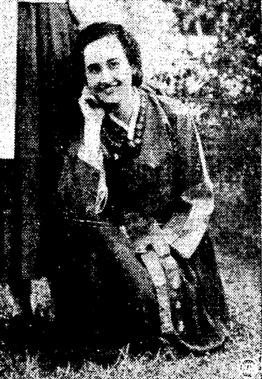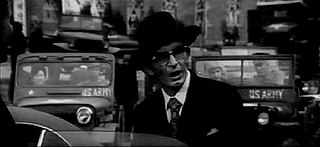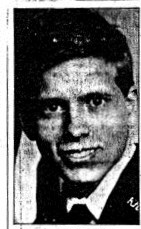Related Research Articles

In politics, a defector is a person who gives up allegiance to one state in exchange for allegiance to another, changing sides in a way which is considered illegitimate by the first state. More broadly, defection involves abandoning a person, cause, or doctrine to which one is bound by some tie, as of allegiance or duty.

Charles Robert Jenkins was a United States Army deserter, North Korean prisoner, and voice for Japanese abductees in North Korea.

Hitomi Soga-Jenkins is a Japanese woman who was abducted to North Korea together with her mother, Miyoshi Soga, from Sado Island, Japan, in 1978. In 1980, she married Charles Robert Jenkins, an American defector to North Korea, with whom she had two daughters. In 2002, she was allowed to return to Japan, followed two years later by her husband and children.

United States Forces Korea (USFK) is a sub-unified command of U.S. Indo-Pacific Command (USINDOPACOM). USFK is the joint headquarters for U.S. combat-ready fighting forces and components under the ROK/US Combined Forces Command (CFC) – a supreme command for all of the South Korean and U.S. ground, air, sea and special operations component commands. Major USFK elements include U.S. Eighth Army (EUSA), U.S. Air Forces Korea, U.S. Naval Forces Korea (CNFK), U.S. Marine Forces Korea (MARFORK) and U.S. Special Operations Command Korea (SOCKOR). It was established on July 1, 1957.

Anna Wallis Suh (1900–1969), the woman generally associated with the nickname "Seoul City Sue," was an American Methodist missionary, educator, and North Korean propaganda radio announcer to United States forces during the Korean War.

Crossing the Line is a 2006 British documentary film by Daniel Gordon and Nicholas Bonner.

Larry Allen Abshier was one of seven American soldiers to defect to North Korea after the Korean War. He was born in Urbana, Illinois.

Unsung Heroes, also known as Unknown Heroes or more literally as Nameless Heroes, is a North Korean war drama mini-series about a spy in Seoul during the Korean War. Over twenty hours long, it was filmed and released in multiple parts between 1978 and 1981. It was the recipient of the Kim Il-sung Medal.

Jerry Wayne Parrish, also known by his Korean name Kim Yu-il, was a United States Army corporal who was one of seven American soldiers to defect to North Korea, four of them during the 1960s, in the years after the Korean War.

An American Dream: The Life of an African American Soldier and POW Who Spent Twelve Years in Communist China is a memoir by Corporal Clarence Adams posthumously published by the University of Massachusetts Press and edited by Della Adams and Louis H. Carlson.

Joseph T. White was a United States Army soldier who defected to North Korea on August 28, 1982.

James Joseph Dresnok was an American defector to North Korea, one of seven U.S. soldiers to defect after the Korean War.
Tens of thousands of South Korean soldiers were captured by North Korean and Chinese forces during the Korean War (1950–1953) but were not returned during the prisoner exchanges under the 1953 Korean Armistice Agreement. Most are presumed dead, but the South Korean government estimated in 2007 that some 560 South Korean prisoners of war (POWs) still survived in North Korea. The issue of unaccounted South Korean POWs from the Korean War has been in dispute since the 1953 armistice. North Korea continues to deny that it holds these South Korean POWs. Interest in the issue has been renewed since 1994, when Cho Chang-ho, a former South Korean soldier presumed to have been killed in the war, escaped from North Korea. As of 2008, 79 former South Korean soldiers had escaped from North Korea.

Roy Chung, born Chung Ryeu-sup (Korean: 정류섭), was a soldier who is widely believed to be the fifth of seven United States Army soldiers to have defected to North Korea after the Korean War.

Anocha Panjoy is a Thai national who was abducted by North Korean agents from Macau on 21 May 1978. Her case only became known after the release of the American Charles Robert Jenkins and his Japanese family in 2004.

South Korean defectors are South Korean citizens who have defected to North Korea. After the Korean War, 333 South Korean prisoners of war detained in North Korea chose to stay in the country. During subsequent decades of the Cold War, some people of South Korean origin defected to North Korea as well. They include Roy Chung, a former U.S. Army soldier who defected to North Korea through East Germany in 1979. Aside from defection, North Korea has been accused of abduction in the disappearances of some South Koreans.

Travis T. King is a United States Army soldier who crossed over the Military Demarcation Line in the Joint Security Area (JSA) into North Korea on 18 July 2023 while on a civilian tour of the Korean Demilitarized Zone (DMZ). King was facing dishonorable discharge from the United States Army due to legal charges in South Korea, the country he was deployed to at the time of the crossing.
References
- ↑ U.S. Knew in 1953 North Koreans Held American P.O.W.'s. New York Times, September 17, 1996
- ↑ Operations Big and Little Switch. State of New Jersey, U.S.
- ↑ Edwards, Paul M. (2000). To Acknowledge A War: the Korean War in American memory. Greenwood Publishing Group. p. 79. ISBN 0-313-31021-1.
- ↑ Young Sik, Kim (July 29, 2004). "Korean War 1950: War of Unification". Eyewitness: A North Korean Remembers. Archived from the original on August 13, 2007. Retrieved May 3, 2009.
July 10, 1950...More than 60 members of the Republic of Korea National Assembly join the N Korean cause.
, for bibliography, see . - ↑ Jenkins, Charles Robert (2008). The Reluctant Communist: My Desertion, Court-Martial, and Forty-Year Imprisonment in North Korea . University of California Press. pp. 115-116. ISBN 978-0-520-25333-9.
- 1 2 3 Choe, Sang-hun (April 25, 2014). "North Korea Says It Detained U.S. Tourist Seeking Shelter There". The New York Times . Retrieved February 6, 2018.
In 1962, Pfc. James Dresnok, who was stationed in South Korea, walked across the demilitarized zone in broad daylight. A court-martial for forging a pass had been looming at the time he defected. Once in the North, he joined Pvt. Larry Allen Abshier, who defected three months earlier. In December 1963, Specialist Jerry Wayne Parrish also defected...
- 1 2 3 4 5 Kaiman, Jonathan (August 13, 2017). "Meet Charles Robert Jenkins, an American detained by North Korea for 40 years". Los Angeles Times . Retrieved February 6, 2018.
- ↑ Ramzy, Austin (December 12, 2017). "Charles Jenkins, 77, U.S. Soldier Who Regretted Fleeing to North Korea, Dies". The New York Times . Retrieved February 6, 2018.
- ↑ Ritchie, Joe; Ahn, Jaehoon (September 13, 1979). "South Korean, Who Joined U.S. Army, Reportedly Defected to North Korea". The Washington Post . Retrieved February 6, 2018.
- ↑ "U.S. Now Says Soldier Went Over to the North Koreans Voluntarily". The New York Times . United Press International. September 3, 1982. Retrieved February 6, 2018.
- ↑ Raford, Antoinette; Fraser, Simon (July 18, 2023). "US soldier held by North Korea after crossing border". BBC News . Retrieved July 18, 2023.